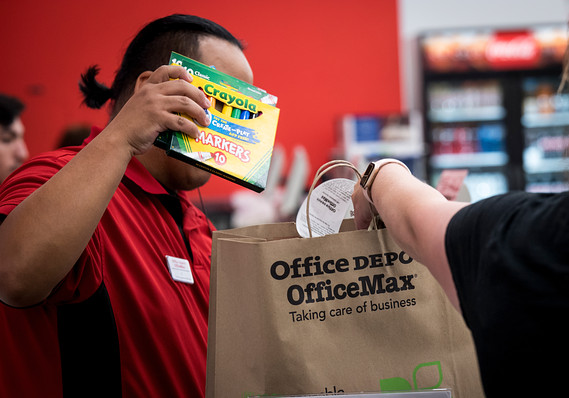 Bloomberg
Bloomberg
The numbers: Consumer borrowing expanded at the slowest pace in three months in June, as credit-card debt contracted, according to Federal Reserve data released Wednesday. Total consumer credit increased $14.6 billion. That’s an annual growth rate of 4.3%, down from a 5.3% rate in the prior month. Economists has been expecting a $16 billion gain in June, according to Econoday.
What happened: Revolving credit, primarily credit cards, fell 0.1% in June, after increasing by 8.4% in May and 7.6% in April. It’s the first decline in revolving credit since March. Nonrevolving credit, typically auto and student loans, rose 5.8% in June. Nonrevolving credit tends to be less volatile than credit-card debt. The data does not include mortgage loans.
Overall consumer credit expanded at a 4.9% annual rate in the second quarter, up from a 4.2% rate in the prior three months.
Big picture: If the weakness in credit-card borrowing continues, it could mean that consumers are pulling back from making major purchases. That, in turn. would be big news for the Fed Reserve, where officials are watching the health of the economy closely as the pace of growth slows this year. Healthy consumer spending is the “linchpin” for his relatively optimistic for growth this year, Charles Evans, the president of the Chicago Fed, told reporters earlier Wednesday. The central bank thinks that consumers have not over-borrowed. Fed Chairman Jerome Powell said households “are in very good shape overall.”
Market reaction: Stocks recovered after opening sharply lower. The Dow Jones Industrial Average DJIA, -0.25% was down only 18 points in afternoon trading after being down by more than 600 points earlier.









